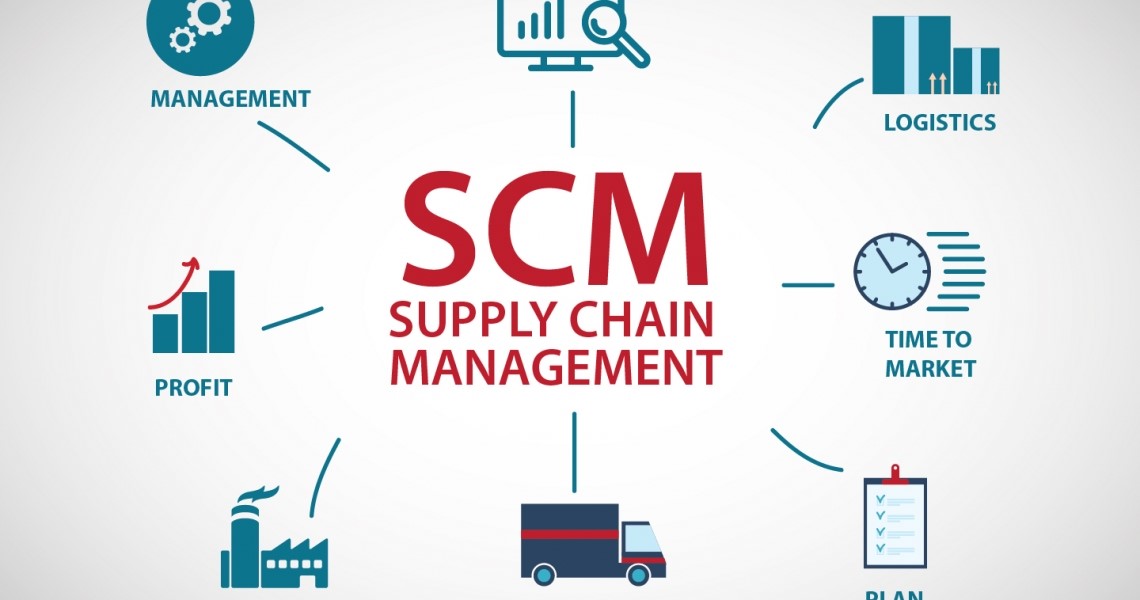What is a supply chain for e-commerce?
An e-commerce business involves the purchase and selling of products and services via the Internet.
The supply chain for eCommerce has been the network of individuals and technology responsible for executing this transaction correctly.
The network as a whole is accountable for ensuring that consumers get their requests on time. It includes manufacturers, suppliers, transportation firms, warehouses, and distributors. Each component of the network operates in a sequential manner. There is an authorized staff member working at every level of the supply chain.
Imagine when your shipping partner one day chooses not to deliver on schedule or if your supplier provides you with spoiled material; you will be unable to satisfy the demands of your customers.
As your business grows, you’ll need to set up an effective eCommerce supply-chain management system to make sure your supply chain works well.
Both business-to-consumer and business-to-business eCommerce has seen significant changes throughout the years. This has created an abundance of opportunities for firms to extend their offerings, implement omnichannel commerce, and pursue new clients.
With the expansion of eCommerce, however, comes increased rivalry in every industry.
E-commerce requires operational effectiveness at all levels for its success. E-commerce cannot exist without supply chain management.
E-commerce supply chain management focuses on the timely acquisition of raw materials, production, and delivery of the correct product. It covers managing supply and demand; monitoring inventory; warehousing; order input; order management; distribution; and client delivery.
The e-commerce sector is not restricted to only creating a website and then selling things online. It consists of product configuration, appropriate infrastructure, logistics, a secure payment channel, and management of supply chains. A streamlined supply chain expedites e-commerce procedures in order to satisfy client expectations.
Inventory management is a crucial aspect of supply chain administration. According to the conventional inventory model, businesses utilized their own warehouses to sell products directly to consumers. In accordance with the risk-pooling approach, however, e-commerce companies increasingly outsource its inventory to bigger wholesalers. It helps e-commerce enterprises decrease the risk of maintaining their own inventory.
Multiple organizations are embracing the drop-shipping approach for inventories. According to this approach, a business does not keep the goods it offers on its website in stock; rather, it purchases the item from a third party and sends it to the client.
Reverse Logistics: E-commerce companies have an SCM system that includes reverse logistics. The definition of reverse logistics is the execution and planning of the transfer of products from the place of consumption back to the place of origin. Almost all e-commerce enterprises provide the option to exchange or refund items. This increases the requirement for logistics.
There are various reasons why e-commerce organizations must guarantee that their supply-chain management processes are as effective as possible in order to flourish. Now you will look closely at these factors to show how important supply chain management is in e-commerce.
Using excellent supply chain management to encourage favorable ratings
With figures such as 72% of customers taking action following reading a favorable review and 93% of individuals stating that online reviews affect their purchasing decisions, it is safe to claim that online reviews get a substantial effect on eCommerce sales.
As an eCommerce firm, among your most powerful marketing tools might be favorable customer reviews. On the other hand, e-commerce businesses are more susceptible to unfavorable evaluations, which is why it is essential to provide a positive buying experience.
Using excellent supply chain management, you can guarantee that orders are completed and arrive on time, therefore preserving customer satisfaction and fostering positive feedback.
The management of the supply chain verifies inventory availability.
As a consumer, it is tremendously handy to be able to inspect a product and immediately determine its availability. In fact, the availability of inventory may decide the outcome of a sale.
For a moment, imagine yourself in the customer’s shoes: Have you ever made an online purchase like from the supply chain management dissertation writing service, primarily because you knew that these services are available?
Managing supply chains effectively will aid in inventory control, guarantee that items migrate from producers to target consumers, and, furthermore, assist eCommerce enterprises in driving sales.
In summary, order fulfillment ought to be the central focus of any eCommerce organization, and effective supply chain management helps achieve this purpose.
Enhance profitability with effective supply chain management.
As previously said, the e-commerce business is very competitive, and pricing is a major factor in the majority of transactions. In order to remain competitive in the marketplace with fair pricing, supply chain activities must be as cost-efficient as feasible. Fortunately, eCommerce-optimized inventory management procedures may assist you in achieving this goal.
A widespread misconception among eCommerce retailers is that inventory levels must be maintained high in order to fulfill orders fast. In actuality, however, excessive stock purchases tie up operating money that might be used elsewhere, such as in marketing to help the firm expand.
Carrying surplus goods wastes storage capacity, and if they do not sell, they may rapidly become obsolete. This consequently necessitates steep shipping discounts, reducing the business’s profit margins.
By ensuring a good supply chain management system is in place, you can prevent the aforementioned challenges and receive stock when it is needed most to boost the profit margins of your company.
Customer happiness is crucial to an e-commerce website’s success and all these are well-explained in procurement dissertation topics for students. According to reports, 84% of businesses feel that engaging in AI would undoubtedly result in a better competitive edge.
Customers will instantly abandon an e-commerce business if they cannot purchase the appropriate goods at the appropriate moment. Ideal for e-commerce profitability is a service level for 95% of items. Slow delivery makes it more likely that the company will lose potential customers and could even hurt the company’s reputation.
CONCLUSION
From inventory to logistics and purchasing to supplier management, procedures should be efficient and well-coordinated. Even if a single link in the supply chain fails to work properly, supply chain management as a whole will fail, resulting in revenue loss. Supply chain (SC) disruptions and outages may result in significant financial losses and damage a company’s image (Oliveira, et al, 2017).
REFERENCE
HWD. 2021. Artificial intelligence. Online available at < https://www.helpwithdissertation.co.uk/blog/artificial-intelligence/ > [Accessed date: 20th September 2022]
de Oliveira, U.R., Marins, F.A.S., Rocha, H.M. and Salomon, V.A.P., 2017. The ISO 31000 standard in supply chain risk management. Journal of Cleaner Production, 151, pp.616-633.



